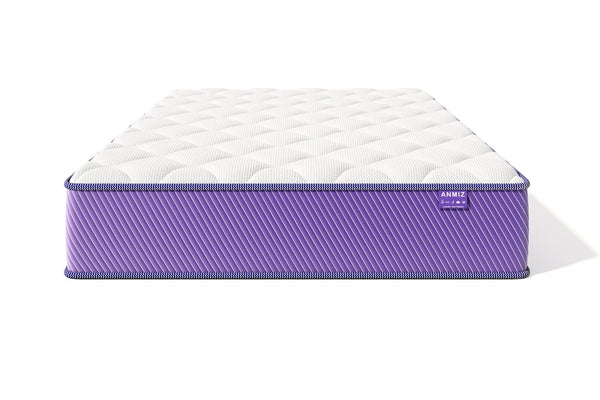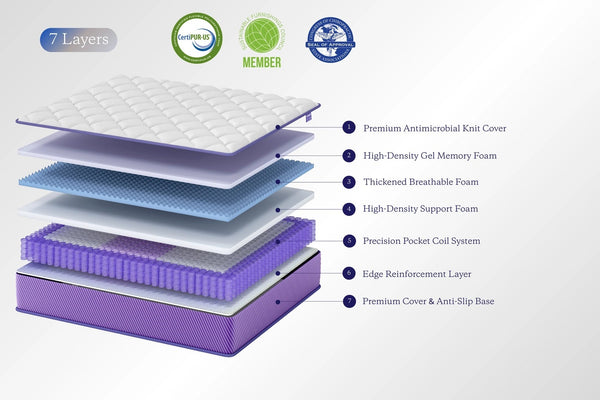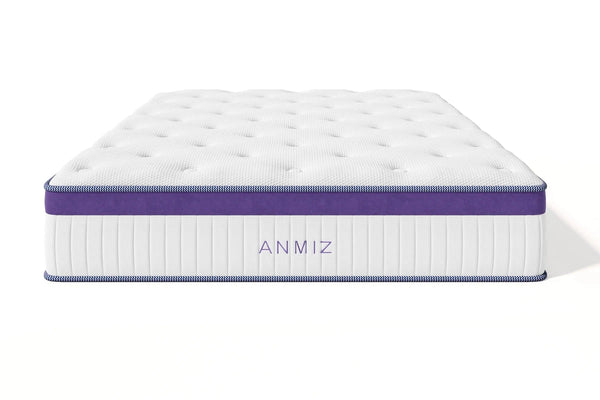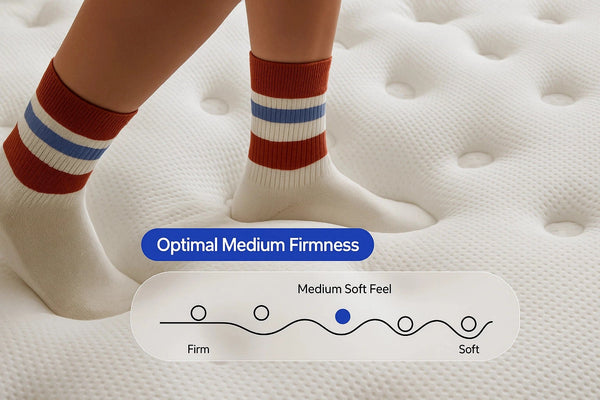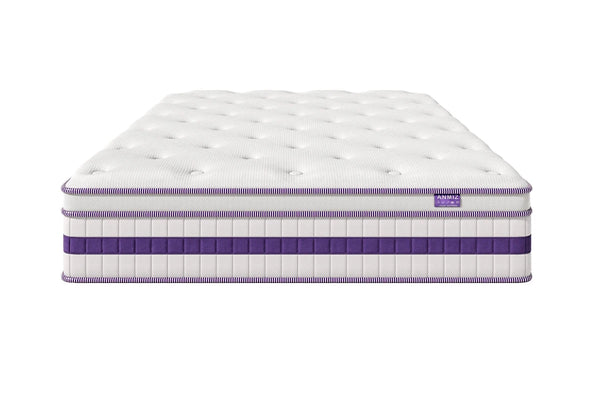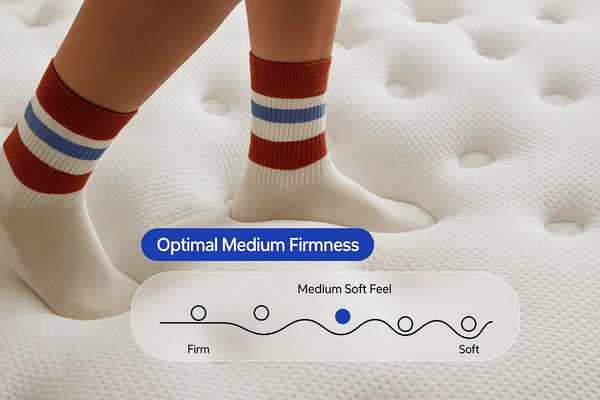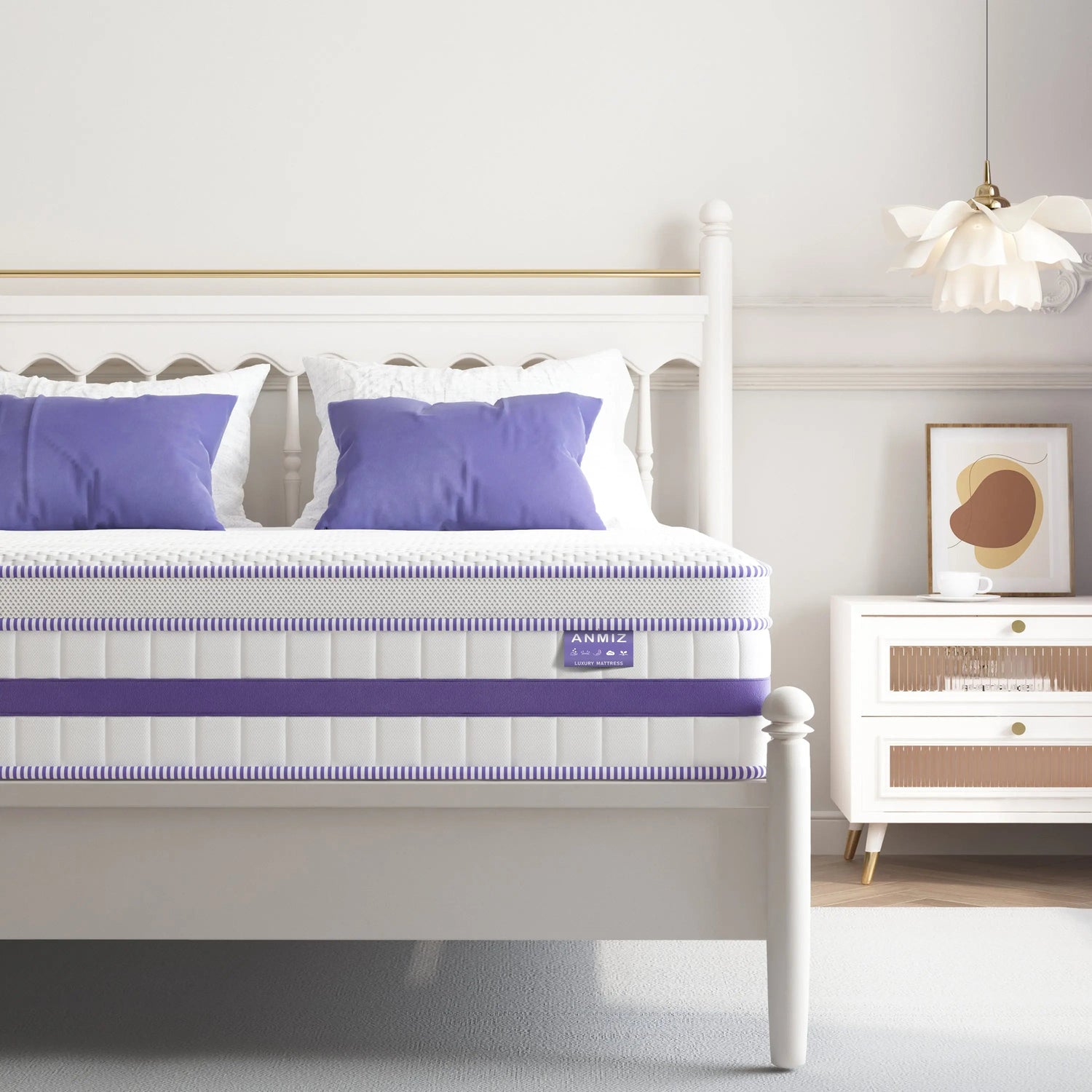
Best Type of Mattress for Back Problems: Expert Recommendations
Choosing the right mattress is crucial if you're dealing with back problems. The best type of mattress for back problems can significantly enhance your sleep quality and reduce discomfort.
Why Choosing the Right Mattress Matters
Impact on Sleep Quality
Sleeping on an unsuitable mattress can exacerbate back pain, leading to poor sleep quality. A mattress that aligns your spine properly can prevent this issue. Studies suggest that medium-firm mattresses often provide the best support for people with back pain.
When shopping for a mattress, consider how it feels under your body weight. Too soft or too firm can lead to misalignment of the spine, increasing pressure points.
Preventing Long-Term Issues
A well-chosen mattress not only alleviates current pain but also prevents long-term damage. Proper spinal alignment during sleep ensures muscles remain relaxed and joints are cushioned appropriately.
Remember, what works for one person may not work for another. Experimentation is key to finding the ideal match.
Types of Mattresses for Back Pain
Hybrid Mattresses
Hybrid mattresses combine innerspring coils with foam layers, offering both support and comfort. They are excellent for all types of sleepers and are often recommended as the best type of bed for back pain.
This design allows for even weight distribution while providing targeted relief where needed most—like the lumbar region.
Memory Foam Mattresses
Memory foam mattresses contour to your body shape, reducing pressure points. For those asking 'what type of mattress is best for back pain,' memory foam is frequently cited due to its ability to mold around curves.
However, ensure the foam density is medium; overly soft foams might cause sinking issues.
Factors to Consider When Buying a Mattress
Your Sleeping Position
Your preferred sleeping position plays a significant role in determining the best type of mattress for back problems:
- Back Sleepers: Need firm support to maintain natural spine curvature.
- Side Sleepers: Benefit from softer comfort layers that cushion shoulders and hips.
- Stomach Sleepers: Require medium-firm surfaces to prevent excessive arching.
Mattress Firmness Level
Firmness preference varies by individual needs. Most experts recommend medium-firm mattresses for optimal support without sacrificing comfort.
Body weight influences firmness choice too. Heavier individuals usually require firmer options, whereas lighter ones may prefer plush textures.
Tips for Testing Your New Mattress
Try Before You Buy
Whenever possible, test mattresses in-store or take advantage of online retailers' sleep trials. Lying down briefly won't give you the full picture compared to experiencing it over several nights.
Pay attention to how your body feels after waking up. Do you notice any stiffness or soreness? If yes, reconsider your selection.
Check Return Policies
Ensure the retailer offers flexible return policies so you can make adjustments if necessary. Some companies allow up to 100 nights to decide whether the mattress suits your needs.
Don’t rush into decisions based solely on initial impressions. Give yourself time to adapt fully.
Conclusion: Making the Right Choice
Selecting the best type of mattress for back problems involves understanding your specific requirements and testing different options thoroughly. Remember, there isn't a universal solution since everyone's body responds differently.
Investing in a quality mattress tailored to your needs will pay dividends through improved sleep quality and reduced back pain. Whether opting for hybrid designs or memory foam, prioritize personal comfort above generic recommendations.
Frequently Asked Questions (FAQ)
What Type of Bed Is Best for Back Pain?
The best type of bed for back pain typically features medium-firm support combined with materials like memory foam or latex. These beds balance stability with adequate cushioning.
Can an Old Mattress Cause Back Pain?
Yes, old or sagging mattresses lose their supportive qualities over time, potentially worsening existing back conditions. Replace them every seven to eight years to avoid such complications.
Is It Better to Sleep on a Hard or Soft Mattress for Back Pain?
Neither extreme is ideal. Instead, aim for a medium-firm mattress that supports your spine without causing undue pressure on sensitive areas. This approach provides the best compromise between comfort and alignment.

